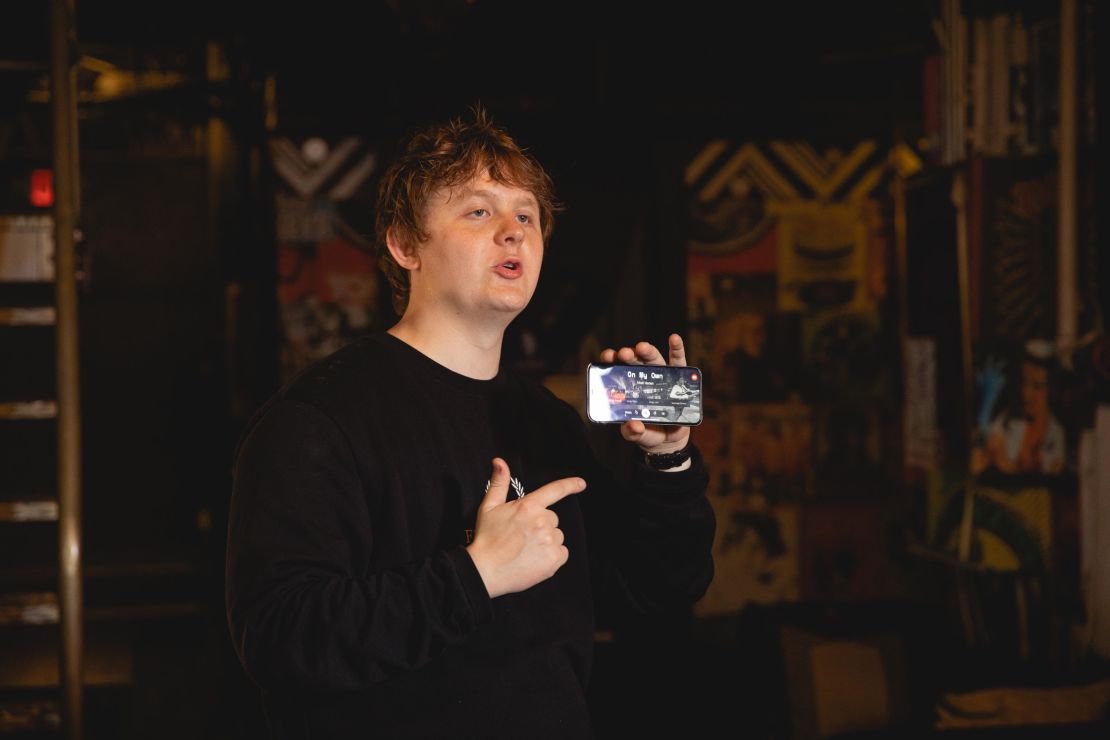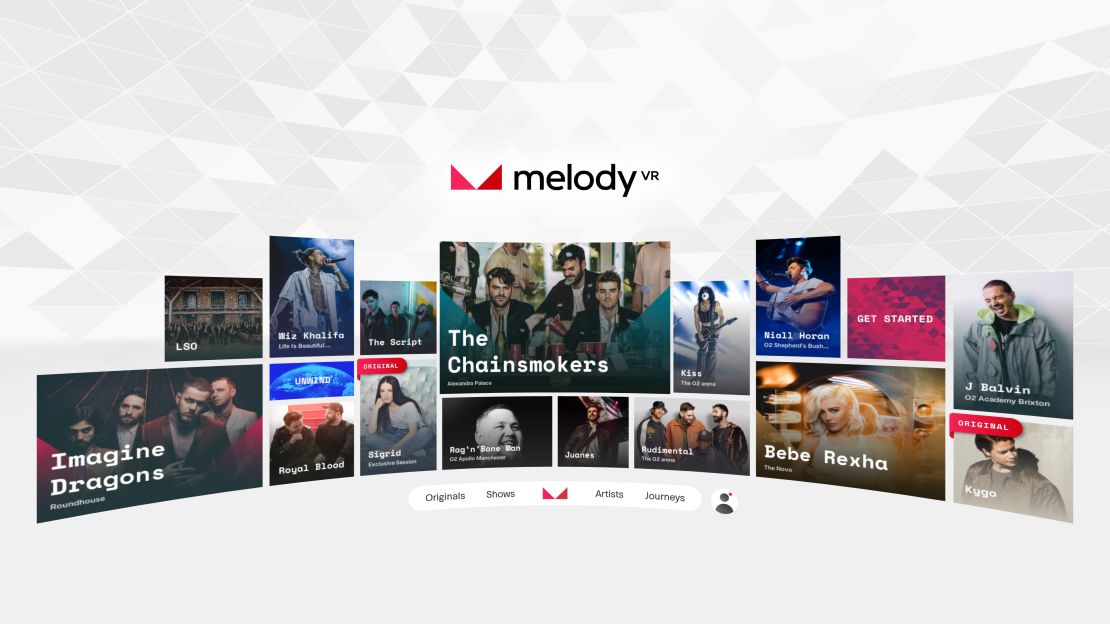Just because your favorite band’s live show sold out in minutes, it doesn’t mean you have to miss out.
In the last few years, musicians have been able to stream concerts to virtual realityheadsets, allowing fans to enjoy the virtual spectacle from the comfort of their homes. Now some VR platforms are going beyond just recreating the live experience, by offering viewpoints and interactions that users could never get if they were at the venue.
Launched in 2018, MelodyVR has built a library of live shows, recorded for streaming to Oculus VR headsets or iPhone and Android devices through its appat a later date. It says it has worked with more than 850 musicians, including Kelly Clarkson, Wiz Khalifa and Lewis Capaldi.

As well as being able to watch from a position in the audience, users can view the concerts as if they were backstage, behind the sound booth, or even on stage with the band. The company has also created more novel experiences; a VR performance by British singer Emeli Sandé displays two images of her simultaneously, one playing the piano and the other singing.
This year, MelodyVR plans to begin offering live streaming via a paid-for virtual ticket, and has designed its own cameras for the task.
“We needed to create[VR cameras] that wouldn’t get in the way of the production, but can also survive the variety of elements that could come with a musical performance, whether that is artists jumping around right next to the camera, champagne [being sprayed on them], or fireworks right in front of them,” Steven Hancock, co-founder of MelodyVR, told CNN Business.
The company, owned by EVR Holdings, says it holds global VR distribution licenses with major labels Universal Music Group, Sony Music Entertainment and Warner Music Group, as well as Beggars Group.
MelodyVR wouldn’t disclose how many users it has, or how many people have watched shows through the platform, but EVR Holdings was valued at around £220 million ($285 million) as recently as January.
It currently operates a pay-per-view model — from $1.99 for one song to around $10 for a whole concert —on Oculus headsets and via its mobile app. This year it will offera monthly subscription that gives unlimited access to concerts and exclusive sessions. It wouldn’t disclose the cost of the subscription.

MelodyVR isn’t the only company to deliver VR music performances. Facebook’s (FB)Oculus Venues offers live VR experiences of sporting events and comedy shows, and last year, it live streamed a Billie Eilish concert in Madrid. As well as sporting events, NextVR offers “immersive music experiences” filmed in nightclubs and studios. Last year, DJ Marshmello reportedly drew millions of attendees to his virtual show in the online game Fortnite.
The future for VR
One challenge for companies streaming concerts is that the market for dedicated VR headsets remains relatively small. Tech market researcher ABI Research predicts the VR market will surpass $24.5 billion in revenues by 2024, while acknowledging that “VR has yet to live up to its early expectations.” For comparison, the global games market was worth around $149 billion in 2019, according to market intelligence firm Newzoo.
But some analysts see a brighter future.Scott Buchholz, Deloitte’s emerging tech research director, told CNN Business that “[The VR market] is likely to continue to grow, particularly as we see an increasing convergence of AR and VR gear, as well as prices continuing to drop and capabilities continuing to rise,”
MelodyVR says it will release its own VR headset this year, for use with its phone app. Priced at around $20, as with other smartphone headsets on the market, the user’s phone will act as the screen and speaker.
Hancock dismissed suggestions that live VR concerts could mean fans will no longer travel to actual performances.
“If (someone can) go to a show (they) always will,” he said. “But for all of the limiting factors as to why people can’t get to live shows, be it geographical restrictions, age restrictions, or cost … we realized there might be an opportunity to smash all those barriers and truly globalize music.”
























